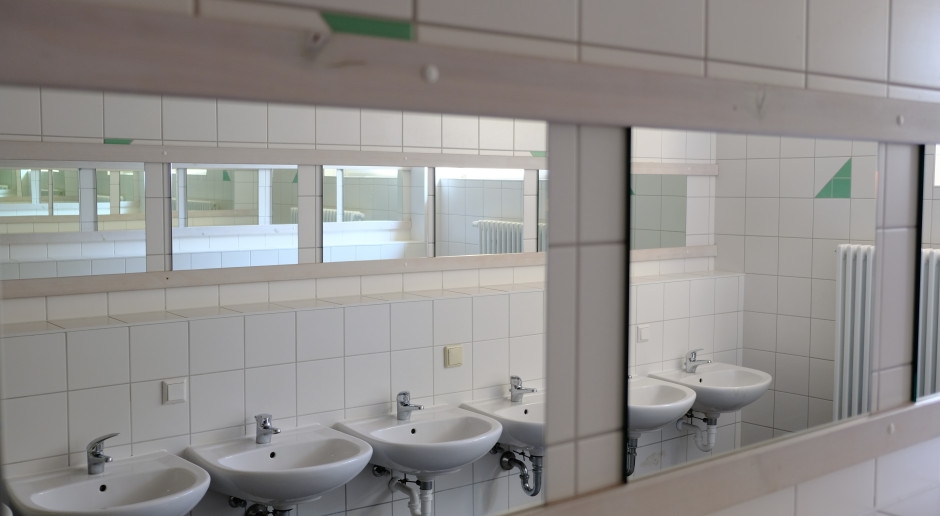Bathing twice a week is a 100 percent increase. Change for inmates

Author: prepared by JKB • Source: Rynek Zdrowia • Published: November 5, 2025 20:19
The Ministry of Justice has prepared draft amendments to regulations concerning the organizational and orderly execution of pretrial detention and imprisonment. The ZRPO believes that the proposed bathing frequency meets international standards to a minimum. Therefore, the ideal model to strive for is the possibility of daily bathing.
- The Ministry of Justice has prepared draft amendments to regulations concerning, among others, the organizational and orderly regulations for the execution of temporary arrest and imprisonment.
- According to current regulations, a male prisoner has to take a hot bath at least once a week, and a female prisoner has to take a hot bath at least twice a week, and at least once a day.
- The draft amendments provide, as a minimum, the possibility of using a warm bath twice a week for all prisoners and access to warm water once a day for women.
- In the opinion of the Commissioner for Human Rights, it would be advisable for female prisoners to have constant access to hot water.
As the Commissioner for Human Rights (HR) points out, current Ministry of Justice regulations stipulate that male prisoners should take a hot bath at least once a week, and female prisoners should take a hot bath at least twice a week, and at least once a day with hot water. Furthermore, both bills assume that prisoners (those on remand or serving a prison sentence) should take a hot bath at least twice a week. The bill does not propose any changes to female prisoners' access to hot water, which must still be provided at least once a day.
It was also noted that, with respect to pregnant and breastfeeding women, the drafts clarify the rules for applying derogations from the statutory procedures for executing pretrial detention or imprisonment by expanding the list of entities authorized to request derogations or provide opinions to include a physician or midwife. They specify a deadline for transferring a pregnant woman—no later than the 28th week of pregnancy—to a penitentiary facility that provides 24-hour medical care, provided at least by a midwife, and access to gynecological and obstetrical services.
It's worth adding that the projects adopt more favorable solutions than those currently in force, and therefore the Commissioner for Human Rights positively assesses the direction of these changes. He also emphasizes that the proposed bathing frequency meets international standards to a minimum. In light of these standards, expressed, among others, in the European Prison Rules, the model to strive for is the possibility of daily bathing, the report added.
The Ombudsman believes it would be advisable for female prisoners to have constant access to hot water. He emphasized that the observed lack or insufficient number of sanitary pads or other hygiene products, combined with the lack of constant access to hot water during menstruation, may constitute degrading treatment of prisoners.
Additionally, the Bangkok Rules emphasize the need to provide female prisoners with the facilities and materials necessary to meet their specific hygiene needs, including water supplies. This issue was also highlighted in the 2016 report of the Special Rapporteur on Torture and other cruel, inhuman or degrading treatment or punishment, which addressed the specific experiences of women deprived of their liberty.
ZRPO Wojciech Brzozowski asked the Secretary of State in the Ministry of Justice, Arkadiusz Myrcha, to consider these comments at a later stage of legislative work.
Copyrighted material - reprint rules are specified in the regulations .
rynekzdrowia










